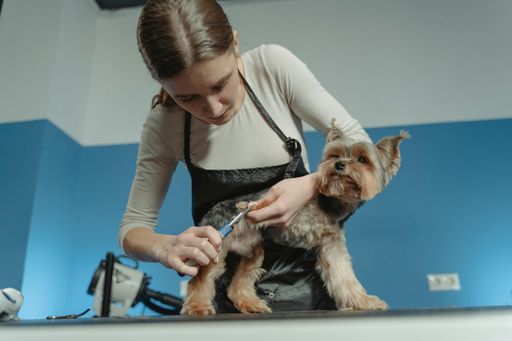Bringing a young dog into your home is an exciting and rewarding experience. However, providing proper care during this crucial stage of their life is essential to ensure they grow into happy, healthy, and well-adjusted adults. Young dogs require specific attention, nutrition, training, and socialization to develop into well-behaved and balanced companions. In this comprehensive guide, we will cover the essential aspects of caring for your young dog to help you navigate this joyful journey.
Establish a Safe and Comfortable Environment
Creating a safe and comfortable environment is the first step in caring for your young dog. Puppy-proof your home by removing any potential hazards, such as toxic plants, electrical cords, and small objects they could swallow. Provide a cozy and designated sleeping area, away from high-traffic areas, where your puppy can rest undisturbed.
Proper Nutrition
A balanced diet is crucial for your young dog's growth and development. Consult with your veterinarian to determine the best diet plan for your puppy's specific breed and size. Choose high-quality puppy food that meets their nutritional requirements and feed them at regular intervals throughout the day. Remember that overfeeding can lead to health issues, so follow your vet's recommendations on portion sizes.
Regular Veterinary Check-ups
Routine veterinary check-ups are essential to monitor your puppy's health and address any potential health concerns early on. Vaccinations, deworming, and preventive medications should be administered according to your vet's schedule. Additionally, discuss spraying or neutering options with your vet at the appropriate age.
Puppy Training and Socialization
Early training and socialization are vital for your young dog's behavior and temperament. Start basic obedience training as soon as possible, focusing on commands like sit, stay, and recall. Positive reinforcement techniques work best and strengthen the bond between you and your puppy. Enroll your puppy in puppy classes or socialization groups to expose them to various people, animals, and environments.
Regular Exercise and Playtime
Young dogs have bundles of energy that require proper outlets. Regular exercise and playtime are essential for their physical and mental well-being. Engage in daily walks, interactive games, and stimulating toys to keep them physically and mentally active. Be mindful of their breed and size when planning exercise routines to prevent overexertion.
Grooming and Hygiene
Proper grooming is essential to keep your young dog clean and comfortable. Regularly brush their coat, trim their nails, and clean their ears to prevent infections. Introduce grooming gradually and use positive reinforcement to make it a positive experience for your puppy.
Maintain a Consistent Routine
Dogs thrive on routine, so establish a consistent daily schedule for feeding, walks, playtime, and training sessions. Consistency helps your young dog feel secure and reduces anxiety. Stick to a regular bedtime and waking up routine to regulate their sleep patterns.
Provide Mental Stimulation
Mental stimulation is as important as physical exercise for your young dog's well-being. Use puzzle toys, treat-dispensing toys, and interactive games to challenge their intelligence and prevent boredom. Mental stimulation can also help curb destructive behaviors that may arise from boredom.
Be Patient and Understanding
Remember that young dogs are still learning and growing. Be patient and understanding during the training process. Avoid punishment-based training methods, as they can lead to fear and anxiety in your puppy. Instead, focus on positive reinforcement and rewarding good behavior.
Conclusion
Caring for your young dog is a rewarding experience that requires dedication, patience, and love. By providing a safe and nurturing environment, proper nutrition, training, and socialization, you can ensure that your young dog grows into a well-behaved and happy adult companion. Regular veterinary check-ups, exercise, and mental stimulation are key elements of their overall well-being. Embrace the journey, and you'll forge a strong bond with your furry friend or emotional support animal that will last a lifetime.



















